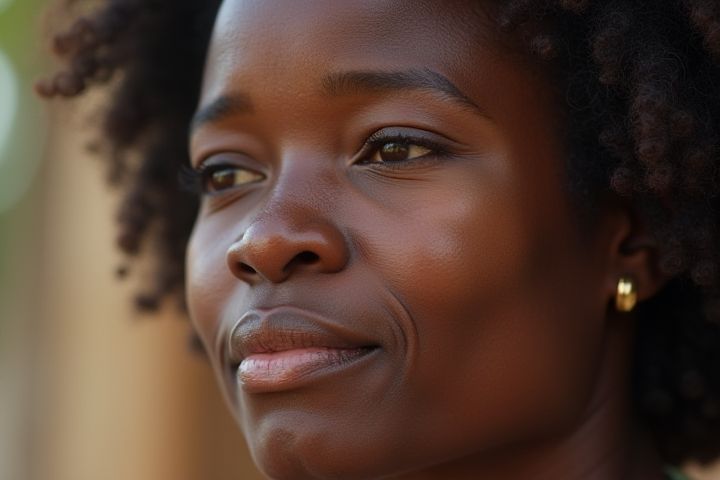
Gender issues in Nigeria encompass a range of challenges, including limited access to education and healthcare for women and girls. Cultural norms often dictate gender roles, restricting opportunities and leading to economic disparities. The prevalence of gender-based violence remains a significant concern, with many women facing domestic abuse and systemic discrimination. Advocacy organizations are working tirelessly to promote women's rights and empower them through various initiatives. Understanding these complexities is vital for fostering equality and driving social change in Nigerian society.
Gender Inequality in Education
In Nigeria, gender inequality in education remains a significant challenge, hindering the development of human capital. Girls often face barriers such as socio-cultural norms, early marriage, and inadequate educational facilities, which limit their access to quality schooling. According to the United Nations Educational, Scientific and Cultural Organization (UNESCO), girls in northern Nigeria are particularly affected, with a high percentage of them out of school compared to their male counterparts. Addressing these gender disparities is crucial for fostering economic growth and ensuring equal opportunities for all citizens, ultimately contributing to national development.
Patriarchal Norms and Expectations
In Nigeria, gender issues are deeply entrenched in patriarchal norms, where traditional expectations often dictate the roles of men and women. Women frequently face systemic barriers in accessing education, leading to lower literacy rates and limited economic opportunities. Societal pressures emphasize the importance of male authority, which can perpetuate practices like early marriage and domestic inequality. Challenging these norms is vital for promoting gender equality and empowering women to participate fully in the economic and social spheres of Nigerian life.
Gender-based Violence
Gender-based violence (GBV) in Nigeria remains a critical issue, deeply rooted in cultural and societal norms. Women and girls often face violations such as domestic abuse, sexual assault, and harmful practices like female genital mutilation. Legal frameworks exist, yet enforcement is often inadequate, leaving victims without protection or recourse. Understanding the dynamics of GBV is essential for creating effective interventions and promoting gender equality in Nigerian society.
Economic Disparities
In Nigeria, gender issues significantly manifest through economic disparities, where women often encounter barriers to accessing resources, employment, and education. Traditional gender roles frequently limit women's participation in the labor force, resulting in a stark income gap between men and women. Women's lack of access to land ownership and financial services further exacerbates economic inequality, hindering their entrepreneurial potential and economic independence. Addressing these disparities is crucial for fostering sustainable development and improving the overall economic landscape in Nigeria.
Limited Political Representation
In Nigeria, limited political representation for women remains a critical gender issue, often perpetuating systemic inequalities. Despite comprising nearly half of the population, women hold a mere fraction of decision-making positions in government and legislative bodies, hindering their ability to influence policies that affect their lives. Various cultural and socio-economic barriers contribute to this underrepresentation, including persistent gender stereotypes and lack of access to education and resources. Advocacy groups are working to address these disparities, pushing for legislative reforms that promote gender parity and empower women to actively participate in the political landscape.
Reproductive Health Challenges
Gender issues in Nigeria significantly impact reproductive health, with many women facing inadequate access to essential healthcare services. Cultural stigmas and socio-economic barriers often hinder women's reproductive choices, leading to higher rates of maternal mortality and unsafe abortions. Comprehensive sex education and improved healthcare infrastructure are critical for addressing these reproductive health challenges, ensuring that women have the knowledge and resources needed for better health outcomes. By prioritizing policies that promote gender equality and access to reproductive health services, Nigeria can work toward reducing these disparities and improving overall public health.
Cultural Practices and Beliefs
In Nigeria, gender issues are deeply rooted in cultural practices and beliefs that often perpetuate inequality. Traditional norms dictate specific roles for men and women, often marginalizing women's rights in education, healthcare, and employment opportunities. Societal expectations pressure women to conform to domestic roles, limiting their participation in decision-making processes both in households and communities. Addressing these cultural barriers is essential for promoting gender equality and empowering women to influence policy changes that affect their lives.
Female Genital Mutilation (FGM)
Female Genital Mutilation (FGM) remains a significant gender issue in Nigeria, affecting millions of women and girls across various ethnic groups. This harmful practice often leads to severe physical and psychological health consequences, including complications during childbirth and increased risk of infections. Efforts to combat FGM involve community education programs aimed at raising awareness about human rights and advocating for the abandonment of the practice. You can support these initiatives by promoting gender equality and empowering local voices to challenge harmful traditions within their communities.
Empowerment Initiatives
Gender issues in Nigeria are significantly addressed through various empowerment initiatives aimed at enhancing women's rights and opportunities. Programs like the Women Empowerment and Gender Equality Bill seek to promote legal frameworks supporting gender equality in education, healthcare, and economic participation. Organizations such as the Nigerian Women Trust Fund provide financial support and training to women entrepreneurs, fostering economic independence and leadership roles. By prioritizing education and access to resources, these initiatives actively work to combat traditional gender norms and promote a more equitable society for all Nigerians.
Legal Frameworks and Policies
In Nigeria, gender issues are deeply intertwined with legal frameworks and policies that shape women's rights and gender equality. The Violence Against Persons (Prohibition) Act aims to combat domestic violence and protect vulnerable populations, yet enforcement remains inconsistent. Policies like the National Gender Policy advocate for equal opportunities in education and employment, but cultural norms often hinder effective implementation. You can advocate for change by engaging with local organizations that work to improve women's right to education and participation in governance.
